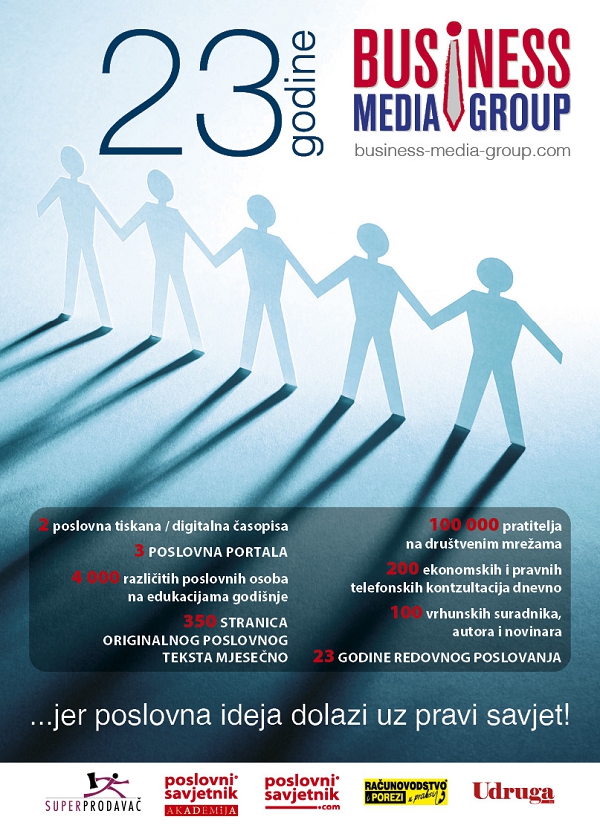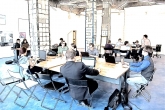John Lodder for Poslovni savjetnik: 2 Essential actions, the ‘What’ and ‘How’, to master post-pandemic Leadership
Disruption was already shaking up markets and companies, the Covid-19 Pandemic increased both the speed and consequences in many ways.
Worldwide millions of people died, millions got unemployed, millions of people became sick, afraid and mentally injured, thousands of companies went bankrupt and so on. Most governments, managers and leaders were not prepared for this crisis and doubted how to cope with it. However, despite the pandemic and its consequences, we inevitably need to look into the future, realizing that every crisis also has its silver linings. Think e.g. of all types of innovations in many different sectors. During this past crisis year many companies got into trouble caused by measures of their government.
On the other hand there are also companies that knew how to profit from the unexpected circumstances and even floated their company to the stock market. The IT-sector for example is thriving, but for a.o. Travel, Retail and Horeca it is disaster. Actually you can distinguish three archetypes of companies in this covid-19 crisis:
Surviving
These organizations have big financial problems because of the covid-19 pandemic. To survive they might need a financial restructuring. The short term focus of these organizations must be completely on surviving.
Adjusting to the New-Normal
These organizations are partly bothered by the covid-19 pandemic and realize that they, for the New-Normal, have to implement changes. Their focus is on keeping value.
Make the most of ones opportunities
These organizations are seeing possibilities for growth. Their focus is on creating value.
Historically, approaches to change have been grounded in management theories that were designed to handle clearly defined technical issues that were typical in the early 20th-century industrial workplace. The enduring legacy of the principles of scientific management that guided the industrial age has been a mindset that change is something to be “managed,” with a distinct beginning and end. Today, too many Universities around the world are still teaching students these outdated approaches of change management.
It happens to nearly every generation
Professions disappear, skills become irrelevant, entire industries grow obsolete. Just remember that only a few generations ago jobs such as an "elevator operator," a "human computer," a "town crier" or a “telephone operator” were a real job.
When we would suggest, say ten years ago, ‘Shall we hire a social media marketer in our company’, the CEO would stare at you like you came from another planet.
Or, Shall we start stimulating working remote, working from home? Three years ago the CEO would look at you in disbelief as if you would give holidays away for free; employees could not be trusted. Such managers are still around!
Today half of the world is working remote; companies structurally save on costs while their productivity and quality goes up. Now remote working is extending and it became a ‘new-normal’.
Different sectors
Taking a closer look at the effects on companies in different industries, we see how many will be reinventing their workplaces as the vaccine rollout continues, with flexible work models becoming a permanent fixture for a range of roles, including sales, finance and technology. But striking the right balance will be more challenging in industries such as hospitality, transportation and retail, where business model changes are likely to require significant shifts in deeply ingrained customer behaviors and employee ways of working.
Price Waterhouse Coopers just presented their annual report[i], a.o. concluding that from 5050 Chair (wo)men and top CEO’s of large companies worldwide, 72% is optimistic and positive about economic growth in general as for their own company.
Brexit was less impactful as expected, USA elections were more quiet than expected, Trade Wars are about over and we have covid vaccines. In the C-suites they are convinced that the economic damage by covid-19 will be limited because this is basically a medical crisis. In the first wave the whole economy went down, later it was more isolated parts of the economy. And many of these will become the fastest growers like the Horeca and Travel sector.
These top Chairs foresee that growth for their companies will be realized with more attention for the wellbeing of employees than before Covid-19, besides they have concrete plans to invest in green recovery.
Employee wellbeing
Covid shifted the attention of the Chairs and CEO’s. Before the pandemic they were worried about getting enough well skilled, competent employees. The pandemic made them realize that employees are vulnerable, that their resistance was tested and that people need connectivity and creativity.
This renewed attention for employee wellbeing comes from internal research in their companies. Employees were asked questions like ‘How are you?’, ‘What do you need?’, ˝How can we help you?˝ etc. In the first lockdown answers were about extra chairs, screens etc. for remote working. Later came the emotional reactions. People lacked energy, sick leave raised. The top exchanged with each other and HRM how to help and provided ‘soft skills’ like life-style-coaches etc.
Green recovery
Another important opinion of the majority of these top people is that the economic recovery must be green. 30% of them see Climate Change as an important threat for the world and the economy. Companies are prepared to invest in fighting climate change but they require from their governments to facilitate scaling-up activities. An example is electric driving. Car manufacturers look at the availability of charging points, manufacturers of charging points look at the quantity of electric cars in the market. Chairs want governments to come up with their vision. And there are more examples like e.g. the further development of renewables, hydrogen etc.
A study from Oxford University
About 47% of jobs in the US alone will disappear due to automation. Gartner research shows that organizations are now focusing about 33% more on skills in job ads in 2020 than they did in 2017. The Financial Times suggests we should plan for careers in our lifetime (not jobs, full on careers!), adding a powerful punchline "Work is impermanent - reinvention is rational". The message is clear: reinvent or get out of the ballgame. Yet, how many schools, universities, or Executive Education Institutions you know are taking this need seriously? There are almost none. Reinvention is still a fringe subject: questionable at best, laughable at worst. No wonder that the words of the historian Yuval Noah Harari (author of the amazing book "Sapiens˝) created so much stir. “Forget programming! The best skill to teach children is reinvention" he said to WIRED magazine.
"The art of reinvention will be the most critical skill of this century" he added for Forge.
As many studies and reports[ii] in 2020 and 2021 concluded: it is time that leaders update their views of change to more appropriately reflect the reality of complex and continuous disruption that faces organizations for a couple of years now. Rather than considering change a concrete, discrete event, leaders need to embrace the reality that change is actually a continuous development process, often without a definite conclusion. If one accepts this updated concept of change, leaders can then shift their energy from trying to control change to creating cultures of resilience and reinvention.
Change is not a punishment, Change is the ultimate freedom to make a choice!” (Dr. Nadya Zhexembayeva)
Embracing the possibility of change with a Reinvention Mindset[iii]
In her book “The Chief Reinvention Officer: How to Thrive in Chaos,” Zhexembayeva defines the reinvention mindset in different ways, summarizing it practically as ‘a systemic approach of engaging in healthy cycles of renewal, building on the past to ensure current and future viability’.
The reinvention mindset Zhexembayeva outlines involves five fundamental flips of our traditional change script:
- Recognize that change is constant
- Break your norms before somebody else does
- Build a system for proactive reinvention
- Retain the best of yesterday while fostering the new
- Think ahead to build up tomorrow.
These five shifts represent the “WHAT” of the reinvention mindset; let us look at “HOW” leaders can cultivate this evolved mindset, not only in themselves, but across their organization.
An Effective Approach for Cultivating Resilience and Reinvention
Appreciative inquiry (AI) has been turning the old ideas of organizational change on its head for the past 30 years[iv] and provides a generative framework for today’s leaders in the creation of resilient, reinvention-minded cultures.
Rather than starting with a focus on ‘What is wrong in our organization?’ AI invites leaders to ask ‘What is working well in our organization?’ and ‘How can we scale up to more successes?’
Simply put, Appreciative Inquiry invites leaders to intentionally ask what they want to accelerate and grow,
with the realization that what we appreciate also grows and will stimulate the whole system.
For a good understanding, Appreciative Inquiry is based upon five core principles[v]:
Principle Summary Details .

By translating these five core principles of AI into guiding leadership practices, there are several actions that can help leaders alter how they approach change and embrace a reinvention mindset:
1. Leading with Questions
Leadership is not about having the answers anymore; today it is all about asking the right questions![vi]
Asking questions that help inspire possibility and invite new thinking helps us move forward in times of uncertainty.
Rather than asking questions about what they do not want (i.e., “What is wrong here, and how do we fix it?”), appreciative inquiry invites leaders to ask questions about what they do want (i.e., “What do we want tomorrow to look like, and how can we create it?”).
This approach shifts conversations from diagnosing and fixing the past to imagining and building the future.
2. Co-creating with Stakeholders - Including Customers
If modern leadership is all about asking questions, those questions need to be asked with, and answered by, all the stakeholders in a system. By engaging the diverse voices in an organization, leaders can lift up the wisdom that is distributed across their system.
Doing so not only leads to more robust solutions, it also helps to build commitment for those solutions, because people commit to what they help co-create. Organizations that are successfully pivoting amid the pandemic realize that this engagement extends to employees and customers. Bringing the customer voice into processes helps inform the customer while keeping the organization close to what customers want and need as the world changes.
The principle of wholeness reminds leaders that change is always more effective when the whole system is engaged.[vii]
3. Prototyping and Pivoting
It is also very important to begin turning the ideas generated through inquiry and stakeholder engagement into action.
One way to do so is by prototyping and pivoting. Rather than waiting for the perfect new product or process, leaders can roll out beta tests and experiment with pilot projects. Getting concepts “out there” for people to see and interact provides trust, creativity and team spirit in the organization on one hand, it helps leaders move away from the old mindset that a change initiative is neat and tidy on the other hand. Leaders create time and ease to lean into a continual reinvention mindset where they take action, learn from it and pivot to the next iteration.
4. Leveraging Strengths
In every system, there are strengths and assets to leverage. As Peter Drucker, one of the most prolific and influential scholars of management wrote:
The task of leadership is to create an alignment of strengths in ways that make weaknesses irrelevant.”
Creating a culture of reinvention is much easier when teams have building blocks to work with.
Appreciative inquiry invites leaders to actively seek and connect the strengths in the people around them. By uncovering and aligning the strengths of individuals and teams[viii] - and across their entire organization - leaders can lift up what is working as a starting point for building the new.
This approach feels much better than focusing on weaknesses and enhances creative and decision-making capacities. After all, when we are in positive affective states, our cognitive processing is also improved.
The good news is that leaders can cultivate and strengthen a reinvention mindset through intentional training and practice. Building skills and approaches like design thinking, a growth mindset and inclusive engagement, collaborative partnering and storytelling for success can enhance this mindset.
Conclusion
In order to thrive and flourish in today’s disruptive world, leaders must adopt these 2 essentials:
A reinvention mindset (the What) that appreciatively ensures (the How) that all stakeholders are involved in, and committed to, co-creating improvements for today and tomorrow in your organization.
John Lodder MA, MSc.
This column is inspired by especially Lindsey Godwin Ph.D., Dr. Nadya Zhexembayeva and Price Waterhouse Coopers.
[i] PwC 24th Annual Global CEO Survey https://www.pwc.com/gx/en/ceo-agenda/ceosurvey/2021/report.html
[ii] Reports from a.o.: The Change Lab, McKinsey, Gallup, Price Waterhouse Coopers.
[iii] Leading in a Constantly Changing World Requires a Reinvention Mindset https://trainingindustry.com/articles/leadership/leading-in- a-constantly-changing-world-requires-a-reinvention-mindset-applying-appreciative-inquiry-to-modern-leadership/
[iv] February 2016: How Has Appreciative Inquiry Lived Up To its Promises? https://img1.wsimg.com/blobby/go/51efc041-220d-40f6-8781-42c50a059a56/downloads/1d2alvdjk_300382.pdf?ver=1599704335266
[v] Cooperrider, D.L. & Whitney, D. A Positive Revolution in Change: Appreciative Inquiry. Taos, Corporation for Positive Change, 1999
[vi] Good Leadership Is About Asking Good Questions. https://hbr.org/2021/01/good-leadership-is-about-asking-good-questions
[vii] In a large, successful change project that I facilitated in 2011 for Metro Cash & Carry - Croatia, we invited participants from all
employee echelons, customers and suppliers to participate in this project. It got a follow-up in a.o. the Belgium and Chinese
Metro organization.
[viii] Want a Better Workplace? Your Team’s Strengths, Risks and Passions Can Lead the Way.
Povezano aktualno

























